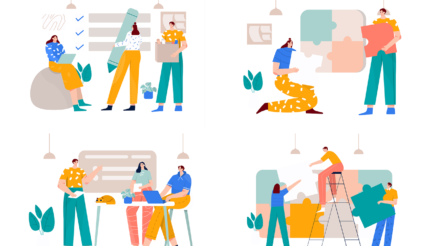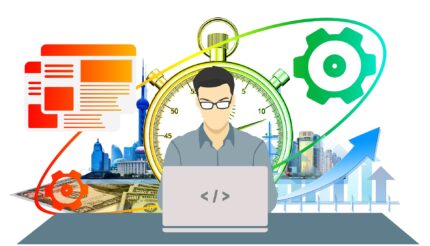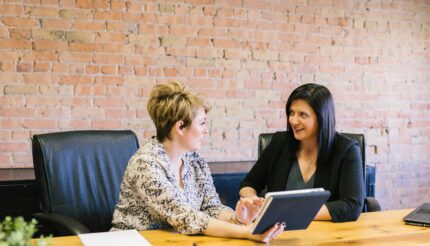The Mental Health Impacts of The COVID-19 Pandemic
In this guest blog post qualified Clinical Hypnotherapist Judith Hanson discusses how the pandemic has affected our mental health.
How has the Pandemic affected your mental health or do you believe there was no effect or that you have fully recovered?
For me the main initial effect was on my business. Overnight I went from a thriving therapy practice to almost no clients, as my hypnotherapy clients were unwilling to move from face to face sessions to Zoom. I did manage to build up a small Zoom client base during that first lockdown but it was a difficult period as it felt as if I had lost my business and I wasn’t sure if I would ever get it back.
Fortunately, I was part of a small coaching group and we all supported and encouraged each other. To help people (including me!) maintain or improve their mental and emotional health, I started to do daily live meditations online and to think more creatively about my business. I offered a 21 day smoking challenge to help people to stop; I created online resources and I found that I enjoyed doing hypnotherapy and coaching sessions online. I also decided to get two cats as I had been without cats for 10 years and was missing them dreadfully. I collected my kittens in September and they really helped me through the 20/21 winter.
I think for some people the first lockdown was OK or better (think furlough and sunshine!). I work with people suffering from anxiety, including social anxiety and, for the latter group, they were delighted and relieved to be TOLD to stay at home and not mix with others as that was what they wanted to do anyway! What a relief – no pressure to get out more or accompany partners to work do’s! However, for those with general anxiety already, the Pandemic generally made things worse – more items to add to their endless worry list and, of course, many people have developed anxiety and depression over the last 20 months.
Some of the causes for new, or increased anxiety, are obvious – the fear that they or those they loved might become ill and possibly end up in hospital on a ventilator, maybe never able to come off it. For many people, including children, home was not a safe place and their very real fears escalated and this period is likely to have significant long term effects on their mental health. For all of us, whether suffering from anxiety or not, there are likely to be ongoing mental health effects, whether we are aware of them or not.
As human beings we are designed to cope with short term, life threatening situations – facing a wild animal who fancies us for lunch or another human being who thinks our cave is nicer than theirs. We find it harder to deal with a long term crisis and remaining in a state of alertness, ready to deal with an ongoing threat that may or may not happen. We generally struggle with uncertainty and we have had to deal with a lot of that. Financial and job worries on top of the health worries; not knowing when/if this will end and for three periods of time in England, being in lockdown not knowing when that would end. Long periods of time separated from family and friends, weddings postponed, not able to welcome new babies and, worst of all, not able to be with or say goodbye to those who died during these periods.
It is almost inevitable that for most of us the effects of these periods of time will last, possibly longer than the Pandemic itself. We have been forced to look at some harsh realities – for all our progress, some microscopic organism can change the whole world, almost overnight! Bad stuff really does happen to people like us – not just to those in other countries. If you add to this the recent highlighting of the environmental problems we face as a world; the likelihood that this won’t be the last worldwide pandemic; the risk that this virus could still mutate out of control and the financial and economic effects of this Pandemic, then we have definitely been shaken out of our collective comfort zone.
But surely it’s pretty much over for now and things are, or will soon be, back to normal? I don’t think many people in Europe would agree with that view at the moment and even in the UK there is still some uncertainty about how things will be through the worst of the winter. On top of that, with our freedom comes responsibility. We all are (or should be!) making individual decisions about distancing, mask wearing, attending small or large gatherings. We worry (or get angry) about those who are making different decisions to us – things would be better and more certain if everyone had their vaccinations when offered versus those who worry about the effects that the Pandemic has had on our personal freedom. We are still facing risks and uncertainties and are all, to a greater or lesser extent, in a state of readiness to deal with whatever comes next and with that can come mental health problems. Clinical anxiety and depression, illnesses as real as COVID-19, just not as obvious. Illnesses that can kill and certainly always take all the joy and fun out of life.
I see this on an almost daily basis in my practice, particularly with younger people who don’t have the emotional maturity or resilience to cope with what has happened to them. But it is possible to recover from these illnesses and to learn techniques to prevent relapses. Look out for changes in those you love and urge them to get help and, if you are suffering yourself, it is OK to ask for help. It’s always OK but, particularly now, in these unprecedented times.
 I am a qualified Clinical Hypnotherapist, Mindfulness Teacher, NLP Master Practitioner and Coach and I am bound by the Codes of Conduct of the professional bodies that I belong to. I have been in practice for nine years, working mainly with people with anxiety, depression and fears and phobias. You can find out more by visiting my website JudithHanson.co.uk
I am a qualified Clinical Hypnotherapist, Mindfulness Teacher, NLP Master Practitioner and Coach and I am bound by the Codes of Conduct of the professional bodies that I belong to. I have been in practice for nine years, working mainly with people with anxiety, depression and fears and phobias. You can find out more by visiting my website JudithHanson.co.uk
I work in partnership with my clients dealing with the current issues that they bring to me and providing them with techniques so that they can self manage in the future. Every client is a wonderful, unique human being to whom I offer a bespoke service.







Your article helped me a lot, is there any more related content? Thanks! https://accounts.binance.com/zh-CN/register-person?ref=JHQQKNKN